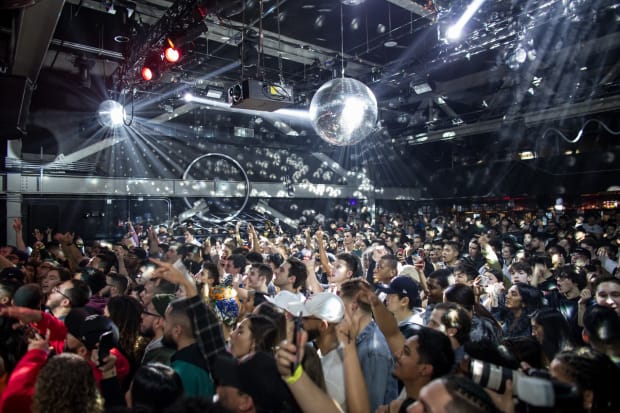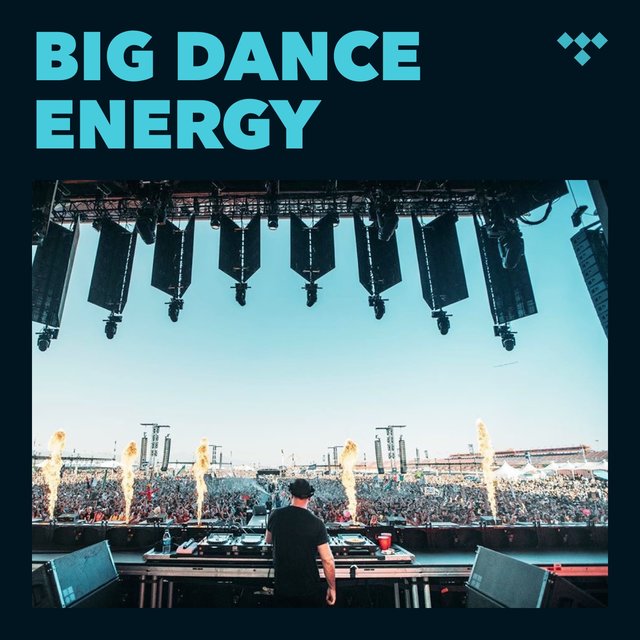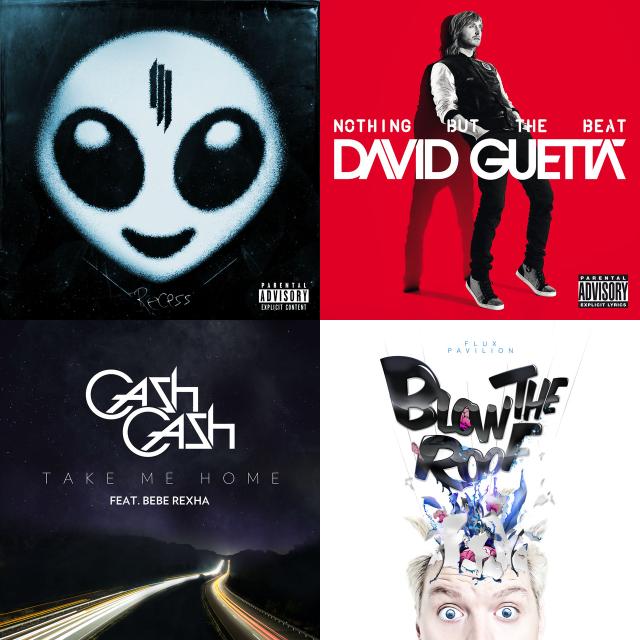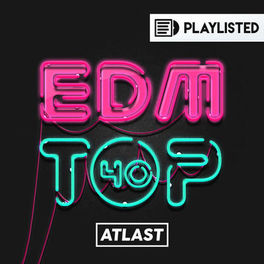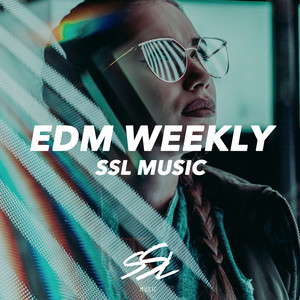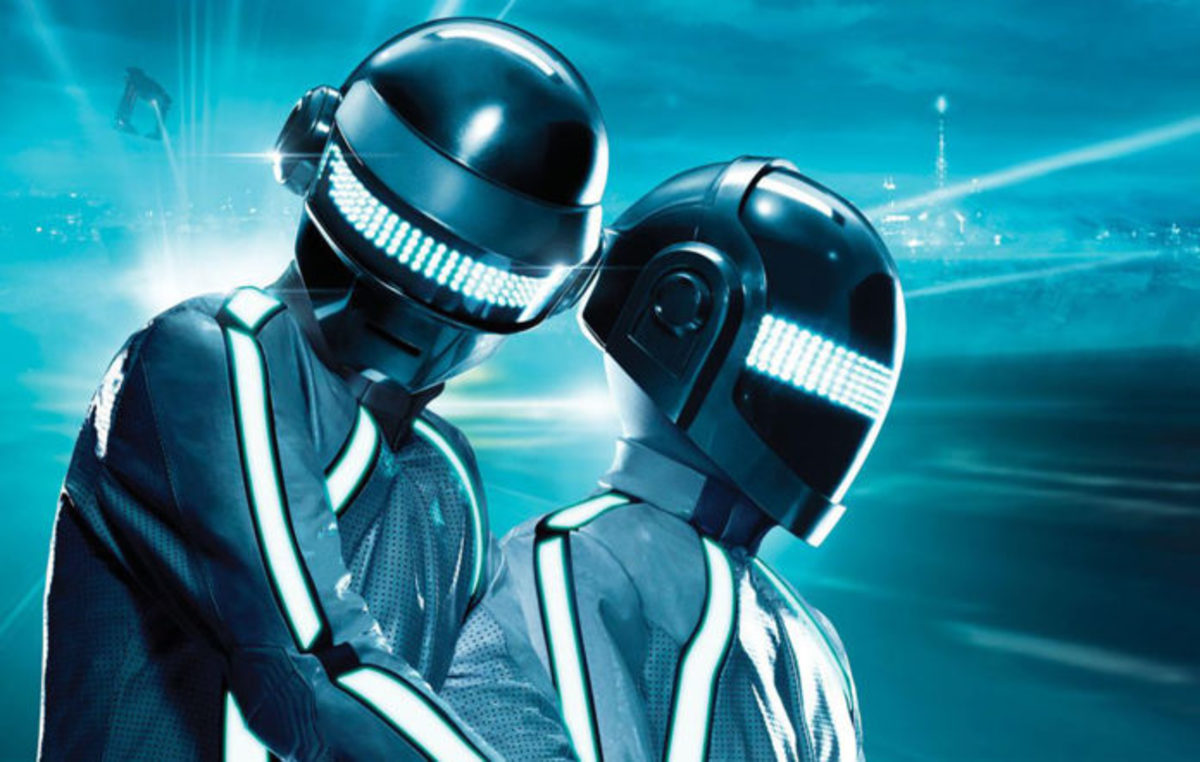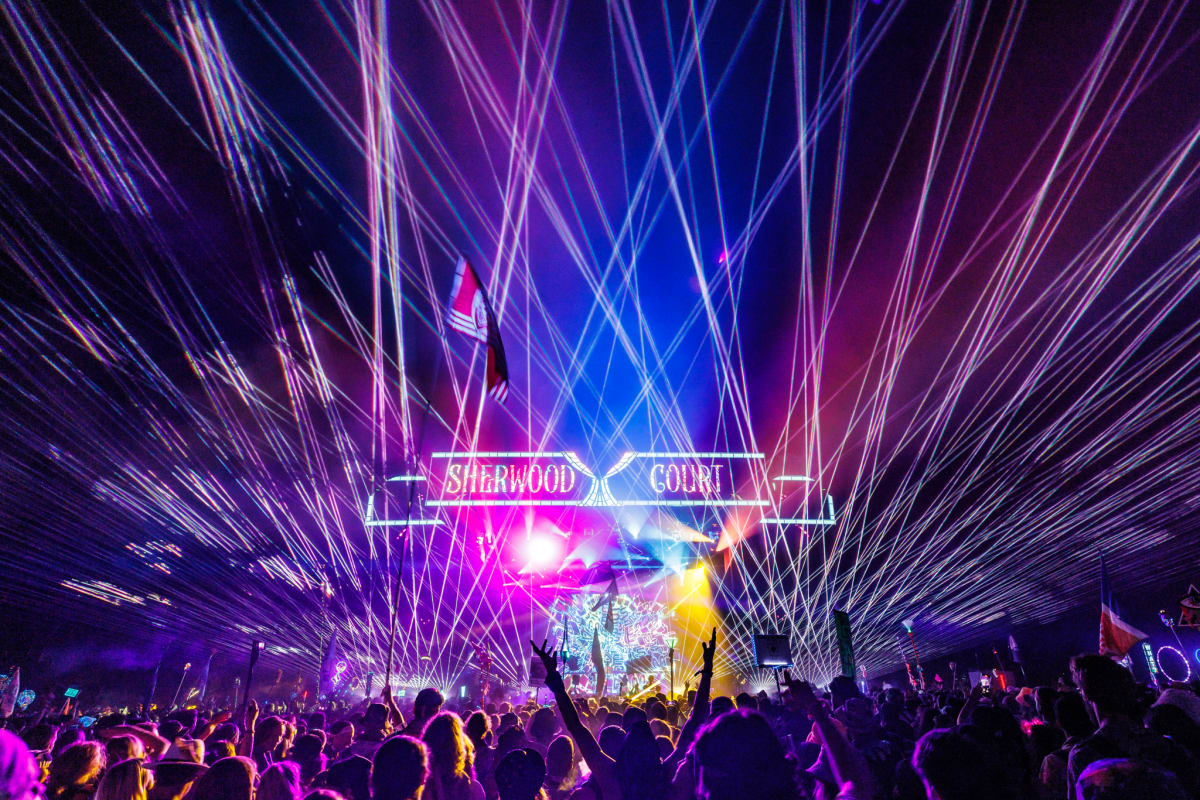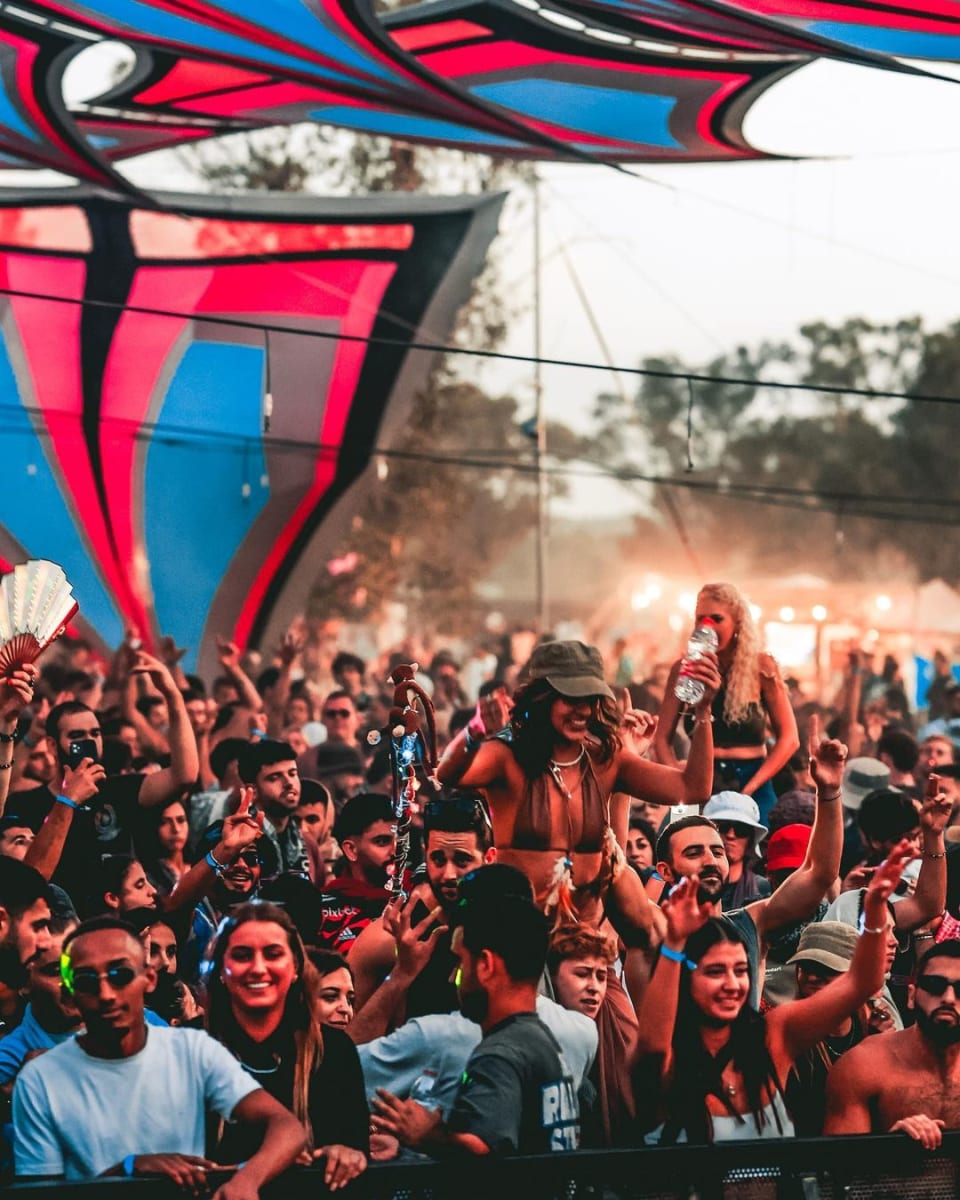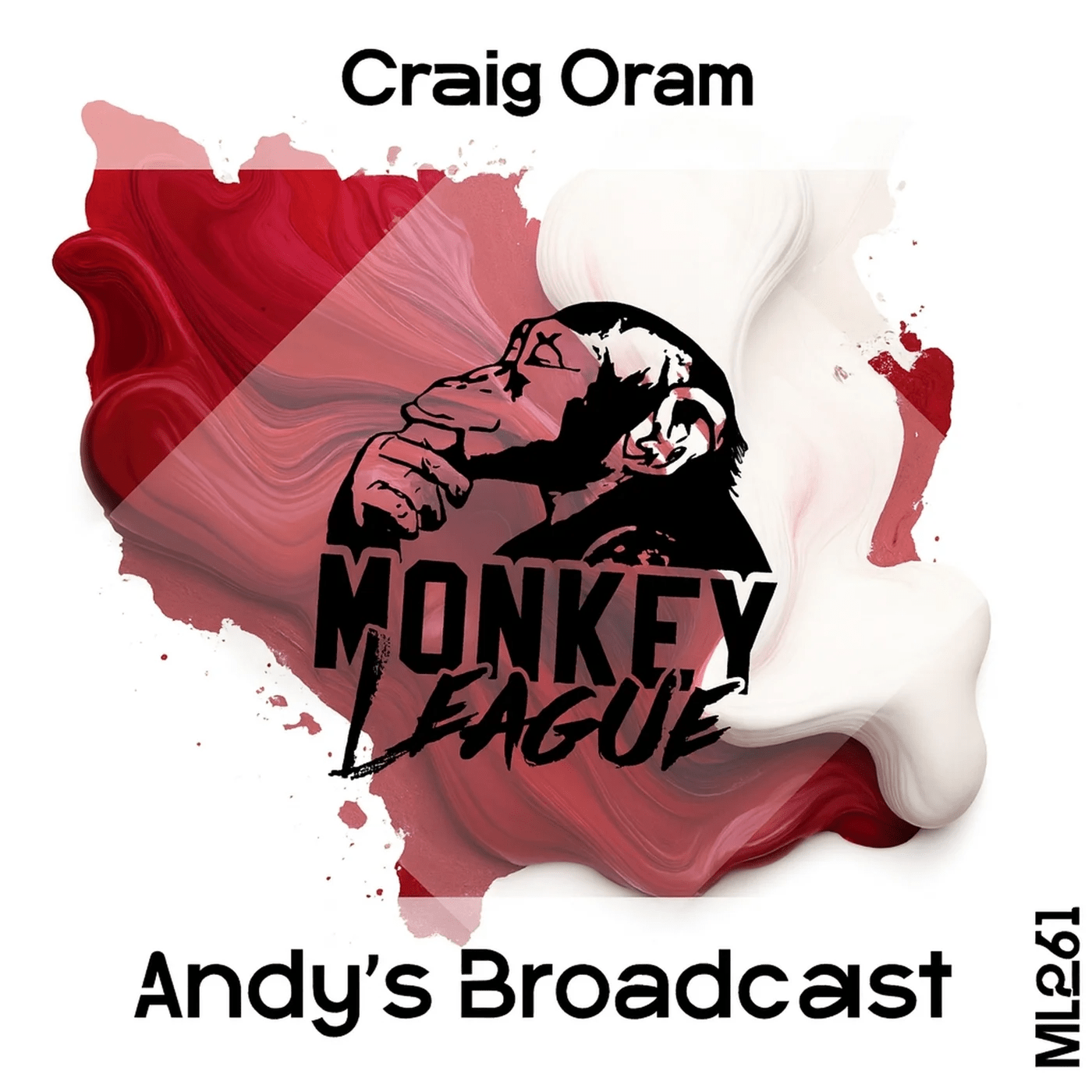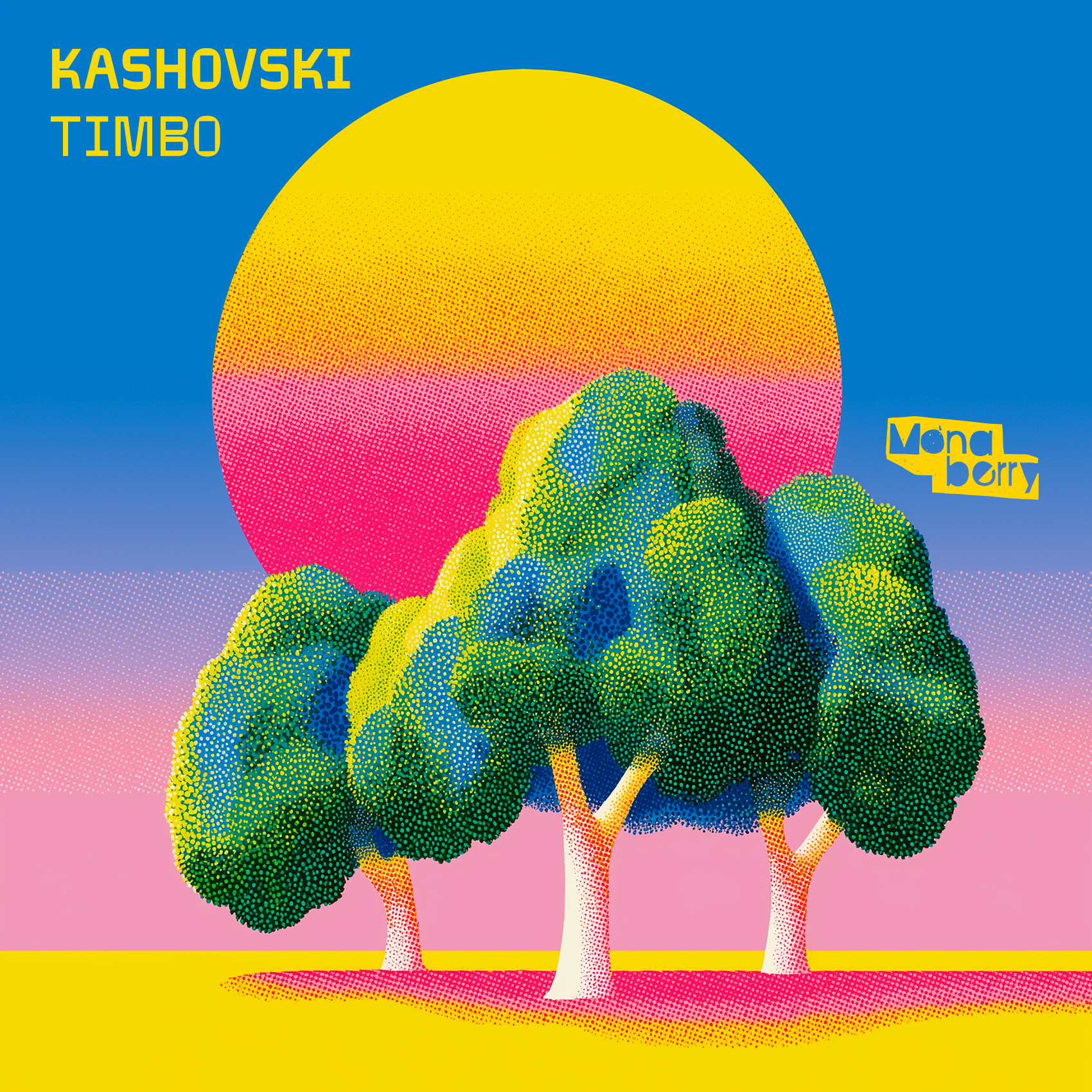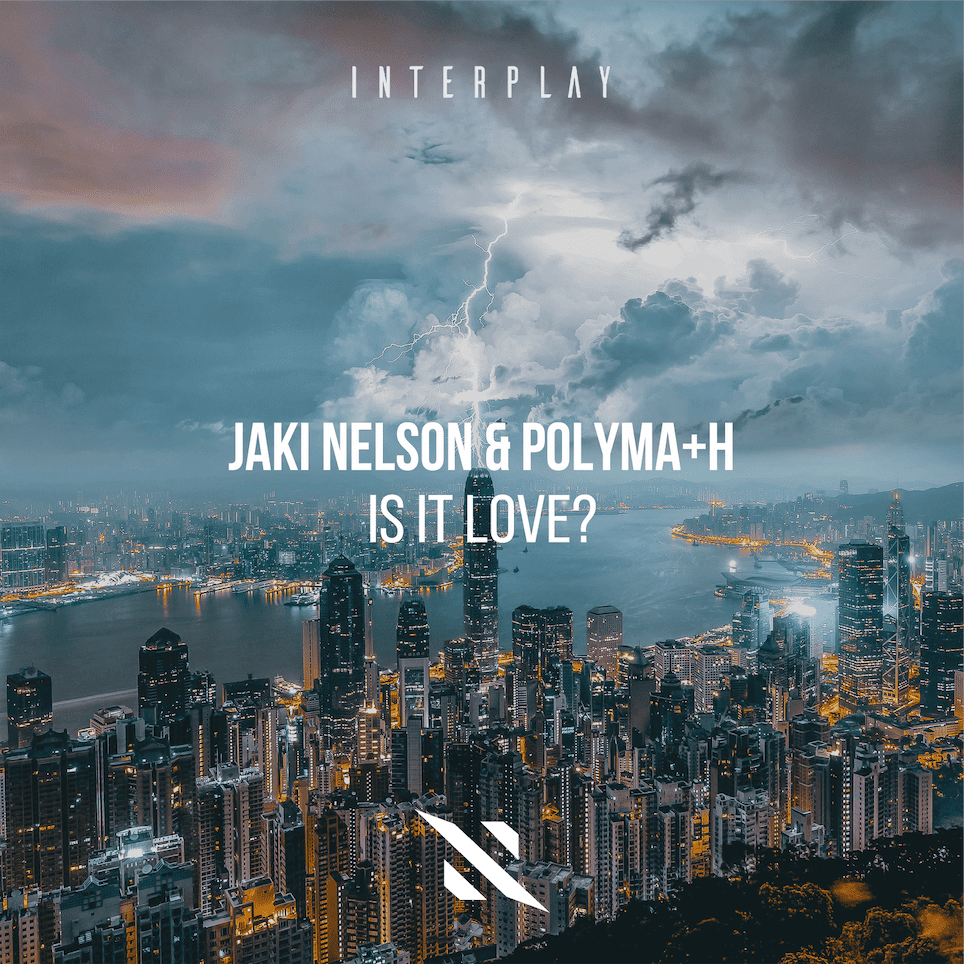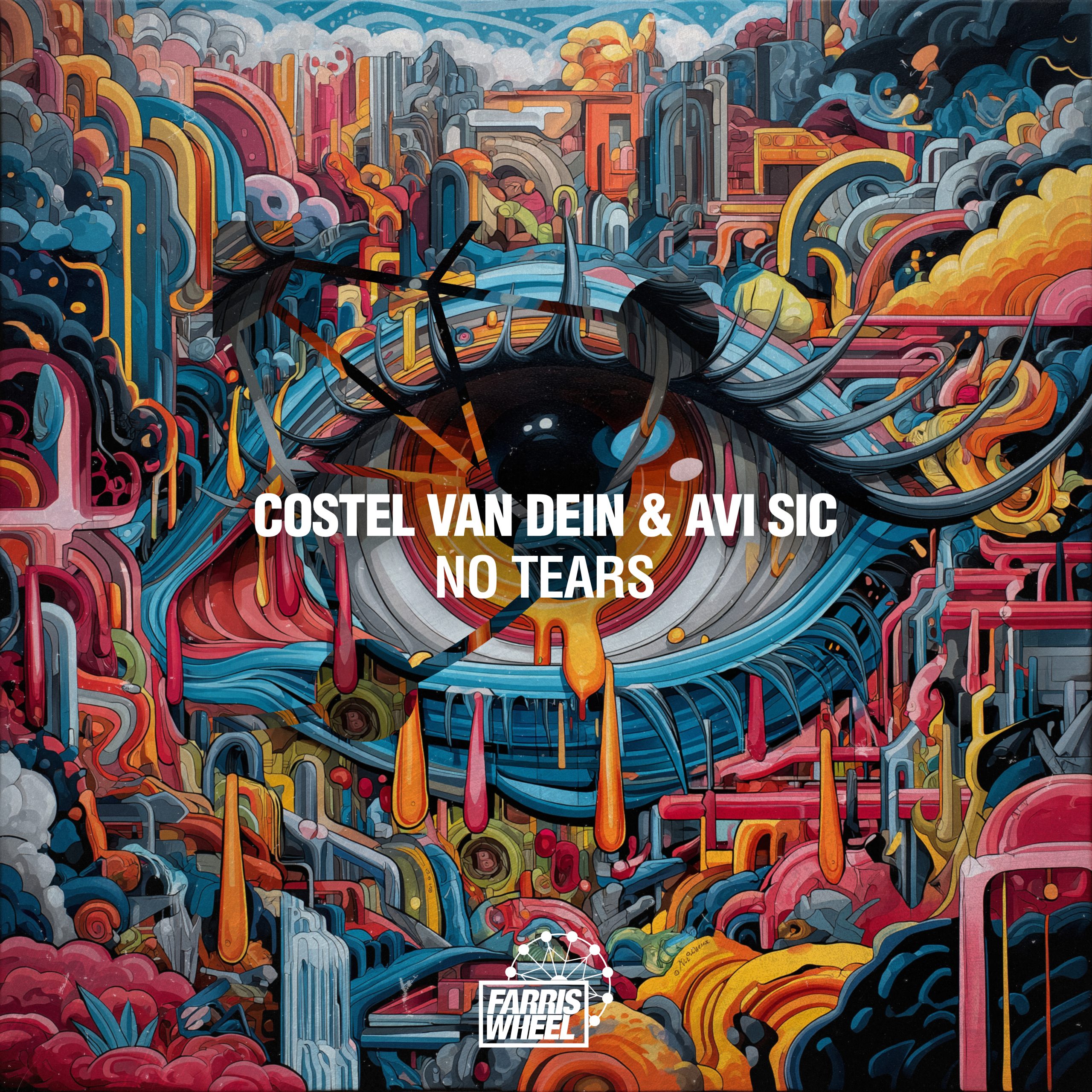How a Grassroots Movement Morphed Into One of New York’s Most Beloved Independent Music Venues
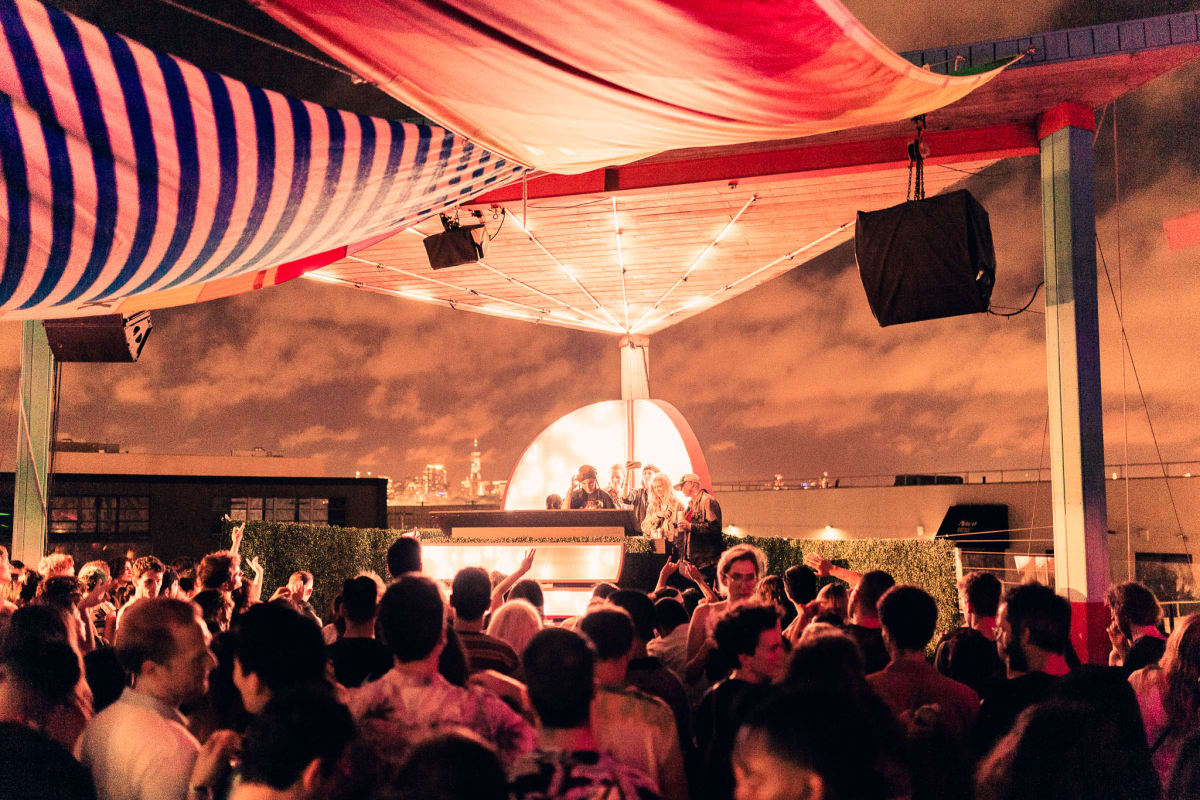
In a city rife with music venues, Elsewhere is a sonic feast for New York's dance music enthusiasts. The special sauce? A blend of uplifting community, progressive programming and a burning desire to remain fiercely independent.
"The idea was to always be kind of out of time and out of space,” Dhruv Chopra, co-founder and CEO of Elsewhere, tells EDM.com. "It's this area you could go and leave behind everything to be there in this joyous moment for the artists, for the people you're going to meet, for yourself."
Elsewhere really is all about the music. The entire venue is devoid of VIP sections and bottle service tables. That’s a calculated measure that fosters community, drawing crowds who crave music over glitz.
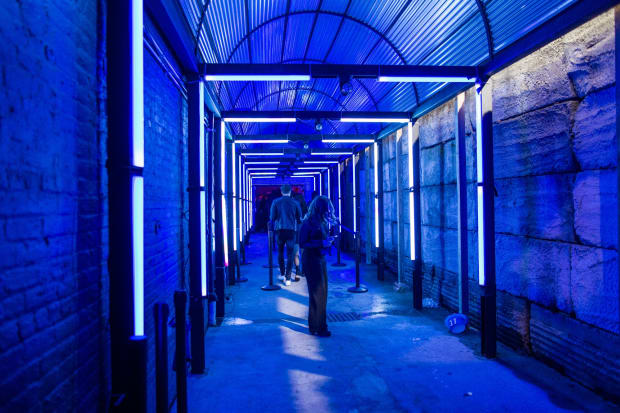
Elsewhere/Facebook
Drawing nearly 300,000 attendees per year, the Bushwick complex has four performance spaces. "The Hall" is Elsewhere’s 750-person main room. Maintaining the grit of its original warehouse space, it boasts a modular performance stage, L’Acoustics sound system, high ceilings and state-of-the-art integrated lighting.
"Zone One," capped at 260 people, and the 750-person "Loft" are conduits for intimate, underground events. The seasonal rooftop, however, might be Elsewhere’s crown jewel. A colorful, L-shaped space with crystalline skyline views, its sunset performances during summer are a real treat.
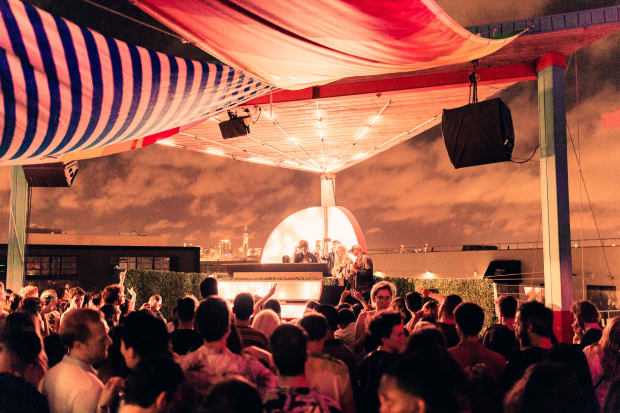
Elsewhere/Facebook
Chopra launched Elsewhere in 2017 alongside co-founders Rami Haykal and Jake Rosenthal. The trio go a long way back.
Chopra and Rosenthal have known each other from the age of seven, when they were next-door neighbors, spanning a friendship of over 30 years. Haykal was a roommate of Rosenthal at New York University during their freshman year, a time when their entrepreneurial plans to burst into the music industry began to hatch.
Back then, long before Elsewhere came to fruition, Rosenthal and Haykal founded Glasslands, a South Williamsburg warehouse they transformed into a "psychedelic venue partyhaus." Though Chopra’s career was centered in the world of investment management at the time, he "unofficially" helped Rosenthal and Haykal with the business side of things.
The 300-capacity venue ran from 2006 to 2014. It hosted now-famous acts like MGMT, Lana Del Ray, Disclosure, Icona Pop and Tame Impala, many of whom were booked for their first NYC show at the time.
Alongside Glasslands, Rosenthal and Haykal founded PopGun Presents, a collective that worked with Paul Kalkbrenner, Amelie Lens, Jungle and more for event production, promotion, music curation and venue management.
Glasslands was raw and DIY, harkening back to the beautifully chaotic bloghouse era. Far from public transport, residential housing and other businesses, the warehouse was deemed unviable by commerce developers. A secluded spot like that was perfect for an underground music venue, Rosenthal and Haykal thought.
The seclusion also offered Glasslands leeway with the law. The quasi-legal venue had around half the city permits it required to operate but avoided problems since law enforcement was more lenient back then. Of course, it helped that no one was around to complain.
The goal with Elsewhere was to unite the best of both worlds, a musical cocktail mixing the grassroots soul of Glasslands with the infrastructure of an entrenched music venue. The idea came about in 2013, while Glasslands was still operational, born of "a natural progression, need for infrastructure, more community elements and importance to get to the next phase of growing and booking emerging talent," Haykal explains.
"It was clear that what these guys were doing was ready for something bigger," Chopra affirmed. Inspired by their tenacious vision, he decided to ditch his investment management career to join Haykal and Rosenthal full-time to build Elsewhere from the ground up. "It felt like a once-in-a-lifetime opportunity," he added.
To kickstart Elsewhere, Haykal was responsible for programming, Rosenthal spearheaded creative branding and marketing, and Chopra led operations, finance and legal.
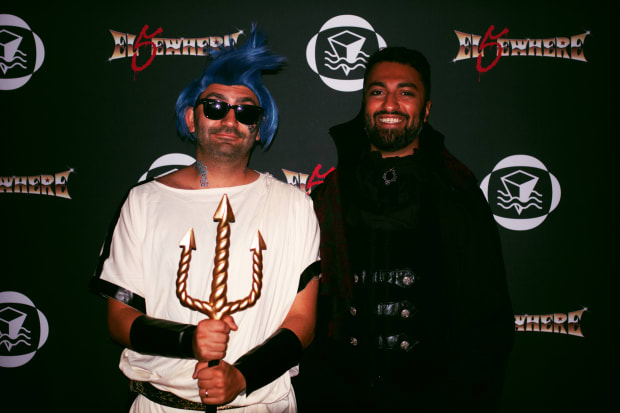
But launching an independent music venue is no easy feat. Legal requirements for power, fire alarms, sprinklers and electrical compliance alongside complex licenses for indoor crowds, loud music, dancing and alcohol were just the tip of the iceberg. And, of course, securing a space to begin with.
"There were some salad days when Glasslands shut down," Chopra recalled. "We were 27 years old and all we had was a PowerPoint presentation."
Fundraising and construction proved to be huge hurdles, ballooning beyond their expectations to over three years of blood, sweat and tears—and a staggering $3 million spend. Unforeseen delays, scope creep and mismanagement by contractors added to their woes. It went so far as forcing them to switch contractors during the build.
"We'd never run a construction project before," Chopra says.
Their own staffing needs were equally vexing. The Elsewhere team grew to over a hundred people, well above initial estimations.
"I'm paraphrasing a chef—I forget who—but to be an entrepreneur and take all this stuff on, you have to be just dumb enough to not know what you're in for," Chopra muses. "Like if you really knew what you were in for, you probably wouldn't do it."
Juggling it all, the team ran out of money eight times during construction. But they remained steadfast on the core elements of a successful music venue: a solid sound system, sterling stages, ample bathrooms and robust air conditioning.
"There's just this primordial soup where you have to deal with everything at once," Chopra says of Elsewhere’s early days. "You're running around doing everything from managing contractors, investors, and city relationships as well as building IKEA desks and setting up the coffee maker. You’re on your hands and knees."
Through it all, a strong mindset kept them focused on their dream of bringing Elsewhere to life.
"The number one thing for any founder regardless of what you're doing, regardless of what the problem is—you have to accept that the problem is there and you've got to just run towards it," Chopra continues. "You've got to be incredibly resourceful and you really learn what the true meaning of proactivity is."
The bumpy ride didn’t stop them from relishing little wins. "With each inspection and sign-off that we got from the city, there was almost this celebratory moment," Haykal recalled. "Even though we weren’t even close to opening, with each of those that we cleared, it felt closer to the goal."
The 24,000-square-foot venue finally opened its doors to the public on Halloween night in 2017. Staying true to its ethos of diverse music, the show was soundtracked by Battles, Combo Chimbita and Cakes da Killa, spanning an evening of experimental rock, Latin pop and hip-hop.
"We were still setting things up when I got out of my office, saw that everybody was there and it was a huge celebration," Chopra recounts of opening day. "There was so much warmth. I remember I didn't actually move from that spot outside of the office door for three hours."
The fan experience aside, Haykal said "going from ideation to reality" as a platform for artists made opening night special. The materialization of “reaching out to artists, having real conversations and finally having something concrete to offer after years of just building it up" hit home for him.
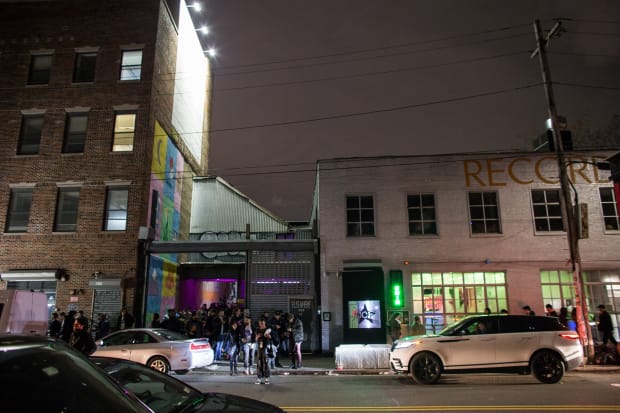
Over 20,000 hours of live music later, Elsewhere has welcomed Kaytranada, Disclosure, Bonobo, Boys Noize, Mija and ZHU to their decks, among other many elite artists. The venue’s electronic music programming holds true to its promise of eclectic offerings.
"The day we get Outkast, I may retire," Chopra quipped. "Obviously pie-in-the-sky—Aphex Twin," added Haykal when asked about Elsewhere's artist wishlist. “"One can dream."
Some dream bookings have indeed become a reality for Elsewhere. "One that has been on the bucket list that I'm actually pretty happy that we're scratching off was Todd Terje, who hasn't toured in about five years," Haykal gushed. “That's been something I've been working on for probably ten-plus years, so it’s pretty rewarding.”
Genres blur at Elsewhere, from the disco-house flavors of The Knocks and Satin Jackets to the brooding dance music of HVOB and Christian Löffler and the ethereal soundscapes of Jon Hopkins and Floating Points. Tenure spans as drastically as musical variety. Detroit techno pioneers Carl Craig, Derrick May and Kevin Saunderson as well as modern breakout house artists like Jayda G, TSHA and Franky Wah have all performed at Elsewhere.
"We're not tethered to a single genre or medium, whether it's concerts or late night," Chopra says.
Elsewhere's proprietors have their fingers on the pulse. They booked Charlotte de Witte in 2018, a year before the launch of her venerated KNTXT label, which is now one of the hottest brands in techno. Plus, Keinemusik played at Elsewhere in 2021, preceding the German collective's meteoric ascent into mainstream fame by virtue of Drake collaborations and videos of their marathon sets dominating social media in 2022.
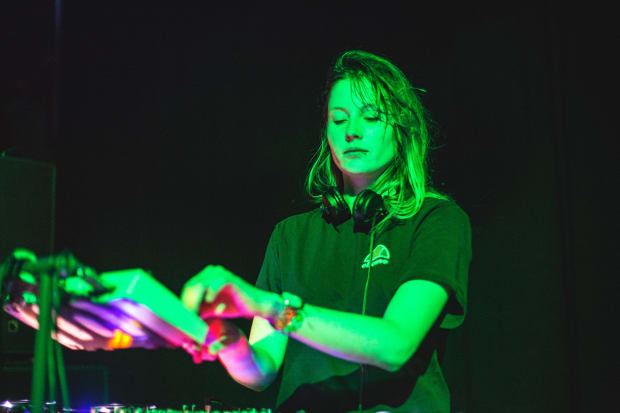
Elsewhere/Facebook
"Building the team, it’s about finding people who have a very wide variety of interests and are excited about different sounds,” Haykal said of Elsewhere’s programming strategy. “We’ve put a lot of training to reach out to artists very early on, having music discovery as a guiding principle. We work with artists based on where they are in their careers, whether it's local ones or national, touring ones, understanding how we can help each party or community grow in time with all of the spaces that we have to offer.”
Emerging music is Elsewhere’s forte, but it comes with risks. They might book an artist with an upcoming album the team believes is destined for success. But that belief isn’t a guarantee, especially for international acts with segmented fans.
Some chances pay off, others don’t. For Elsewhere, that’s a worthwhile bet in a mission to propel emerging acts ahead.
"It's about supporting the next generation of music," Chopra asserts.
That conviction is exactly why Elsewhere believes they don’t have to worry about competing with neighboring music venues like House of Yes and the Brooklyn Mirage. Both are short walks—under 10 minutes—from Elsewhere.
“I don't really see there to be too much competition,” Haykal says. “Everyone works in their own way, has an interesting offering and fits a certain need for all the artists.”
Unlike the Brooklyn Mirage, Elsewhere isn’t trying to book household EDM names like David Guetta and Tiësto. “For us, it's been the consistency of 15 years of programming, being a trusted voice in the industry and the city for finding and presenting emerging artists,” Haykal explained.
Another aspect that gives Elsewhere an edge is the quality of its staff. Ever had a bad experience with a bouncer at a nightclub that sets the tone for a venue more than its stage production or top-tier performers? Touchpoints with venue staff are an important but overlooked part of the live music experience.
“In order to achieve being the best venue, you have to really focus on your staff,” Chopra says. “We say that's our number one stakeholder. So the level of commitment to building a company that stands for something, makes people's lives better, and allows people to self-actualize is critical because you can't do it without a world-class team.”
Creating a safe space is also of utmost importance to Elsewhere. The venue's staff undergoes sensitivity training to recognize how to respect, understand and interact with patrons from varying identities, sexual orientations and backgrounds.
“A lot of the team members who are involved at Elsewhere have worked together at various venues and clubs throughout the years,” Haykal says. “The consistency and working relationship of 10 plus years has really been very important to the fabric of the club.”
Beyond world-class staff and an unrelenting focus on emerging music, a strong emphasis on community makes Elsewhere special.
The venue regularly hosts culturally significant takeovers, including those from Papi Juice, an arts collective celebrating queer and trans people of color; No Nazar, a South Asian dance music brand; and Laylit, a Middle Eastern party blending Arab pop, hip-hop, techno and breakbeat. An ode to the origins of stateside dance music, Elsewhere also hosts official reunions celebrating the trailblazing '80s club Paradise Garage.
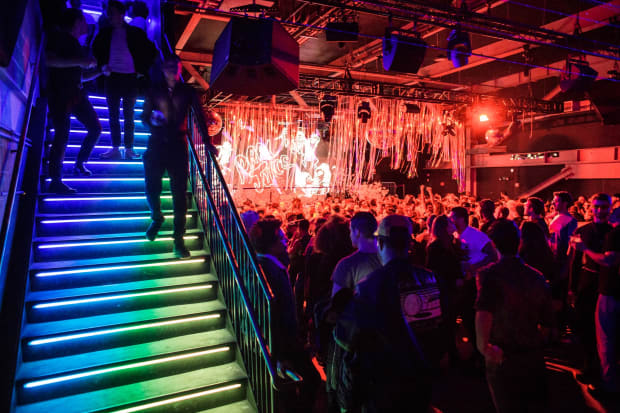
Elsewhere/Facebook
Aside from cultural programming, Elsewhere manifests community through membership, providing patrons who frequent the venue an inclusive and affordable way to indulge in live music. Its “Patron Saint” membership tier is modestly priced at $40 per month, which is lower than the cost of the typical general admission ticket at an electronic music show in New York. It includes unlimited free entry, half-off tickets for a plus one, skip-the-line privilege, free coat check, invites to member-only events and a thrice-per-week exclusive newsletter, among other discounts, promotions and giveaways.
To put that into perspective, Brooklyn Mirage’s lowest-priced Season Pass costs roughly $300 per month. “It’s to give back to the people who are really interested in coming to Elsewhere a lot,” Haykal explained regarding Elsewhere’s membership program, which champions inclusion in lieu of artificial VIP status.
"Small things really add up, especially at a time in New York where post-COVID ticket and drink prices have gone up,” Haykal says. “With all the inflation, it’s become a little bit more prohibitive for people to go out. To continue to experience the culture and the emerging artists that we have, we felt like we needed to create a space for people who really wanted to be there.”
Community extends into the digital world too. Thousands of people flock to Elsewhere’s official Discord to arrange meetups, discuss events and share music. While Elsewhere’s team is active on the venue's Discord server—and even has ambassadors and community managers to spur conversations—members have taken off on their own to cultivate a community.
“Anything that we do, we’re sort of the dinner host or the coffee table book,” Chopra says of Elsewhere’s unique position in the local community. “Whether we're programming in the physical or digital space, we're giving people prompts, reasons to come together and initiate conversations.”
Chats on Discord aren’t limited to Elsewhere. Members discuss books, film, TV, fashion and art too. “That to me has been really heartening,” Chopra gushed. “It's not like some sort of branded community, it really is just people who want to be a part of the music and culture.”
“It's almost a return to the origins of the Internet where things were kind of done for the good of people and it’s really refreshing to see that,” Haykal said of the laissez-faire environment Elsewhere embraces.
For Elsewhere, community isn’t just tied to its programming of emerging artists or cultivation of patron connections. The venue strives to represent the music community’s best interests in the industry at large.
Chopra recalls Elsewhere hosting Mayor Bill de Blasio for the repeal of New York’s anti-dancing, discriminatory Cabaret Law as one of his biggest achievements at the venue, greater than any concert or dream artist booking.
“We're not just a music venue—we've always believed that we're part of the community and neighborhood,” Chopra exults. “This was an acknowledgment from the city that we’re legitimate players.”
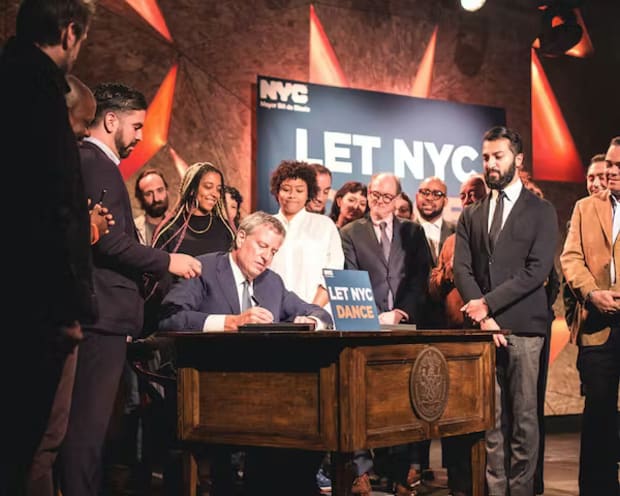
Elsewhere
Enacted in 1926, the cabaret law required New York’s clubs, bars and restaurants to obtain a cabaret license to allow dancing. The process to get a license was restrictive, expensive and arduous.
Fewer than 100 of the city’s 26,000 bars and restaurants held a license at the time of the repeal in 2017. Until then, it was actually illegal to dance in a bar without a cabaret license. The law was often enforced as a discriminatory measure, discouraging racial mixing at Harlem jazz clubs in the 20th century and cracking down on places frequented by the LGBTQ+ community more recently.
That wasn’t the last time Elsewhere was part of a historic moment for the local music industry. In 2021, the venue worked with Senator Chuck Schumer to bring capital to the independent music industry at a time when local music venues were reeling from the brunt of the COVID-19 pandemic. Schumer took the stage at Elsewhere to announce the American Rescue Plan, a federal initiative that included critical relief for independent live venues, movie theaters and cultural institutions.
Still, Chopra believes there’s a lot more for Elsewhere accomplish. The opportunity to grow the venue as an even bigger beacon of music and community is what excites him most about its future.
“How we grow has become much more clear to us,” he says. “This idea of we create community in the physical space, we create community in the digital space, and we help people come together—I think there's just a lot more room for us to be able to bring that to more and more people—and that to me is really exciting."
